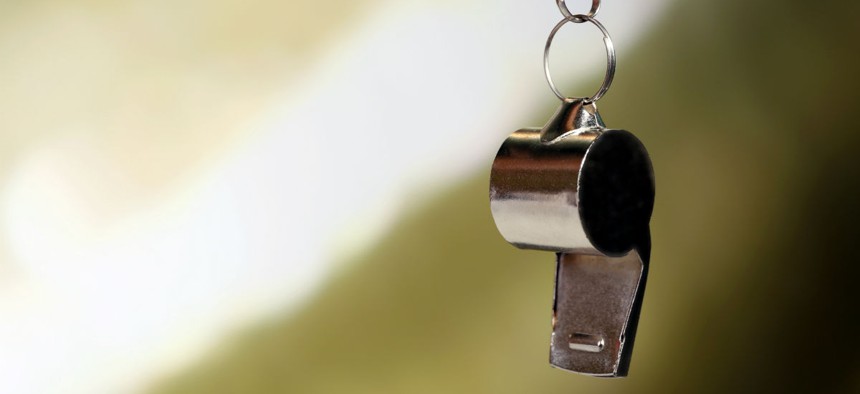VA's Response to Three Whistleblowers Inadequate, Special Counsel Says
Decision not to discipline managers called "unreasonable."
In the latest in its continuing scrutiny of the Veterans Affairs Department, the Office of Special Counsel on Friday reported that it was faulting the department’s managers for inadequate follow-up on three whistleblower cases affecting health and safety.
The findings reported to the White House and Congress involve medical facilities in West Virginia, upstate New York and Washington, D.C.
In one case, based on alerts from an anonymous whistleblower, the Beckley VA Medical Center in West Virginia was “found to have improperly substituted prescribed antipsychotic medications in order to save money,” OSC said in a statement. The VA’s Office of Medical Inspector found that these actions created a threat to the health and safety of mental health patients in Beckley and violated VA policy.
The whistleblower’s other allegations were not substantiated, and VA officials decided not to discipline the managers for the drug substitutions because the managers were “unfamiliar with VA policy” and their actions were not knowing and willful. But “in other cases, including in formal litigation, the VA has sought disciplinary action against senior officials who failed to exercise appropriate oversight,” OSC said. The Special Counsel concluded that “this is a more appropriate standard,” and that discipline should have been considered in response to the medical inspector’s findings.
In Canandaigua, N.Y., employees at a veterans crisis line and call center volunteers were found to be inadequately trained, as evidenced by delayed responses to vets who may be suicidal. “The VA Office of Inspector General found that back-up call centers routed some veterans seeking help to voicemail, and sometimes neither the crisis line nor back-up center volunteers immediately called veterans back,” OSC said.
The problems were disclosed by VA employee John Giunta, and managers took steps to improve training and responsiveness. “However, the Special Counsel concluded these actions do not adequately address the VA’s lack of oversight of its back-up call centers,” the OSC said, noting that some case outcomes were not tracked.
In a Washington VA Medical Center, staff registered nurse John Leahy in 2014 disclosed to the Special Counsel that the facility had failed to test flexible endoscopes for leaks before 2008.
“Using a leak testing method, Mr. Leahy discovered leaking endoscopes and, in response, developed new procedures for the clinic,” asserting that VA should have notified the patients of the faulty equipment, OSC said.
“The VA maintains that visual leak inspections and the use of disinfects were sufficient to identify and address any biohazards in its endoscopes before reusing them,” OSC’s statement said. But the whistleblower provided endoscope manufacturer guidelines and other information that appears to contradict the VA, according to OSC. VA also said it did not need to notify patients because it had found no evidence of an “adverse event.”
OSC said VA should have convened a clinical review board and the Special Counsel’s office remains unconvinced that VA’s position is “reasonable and supported by the facts.”








